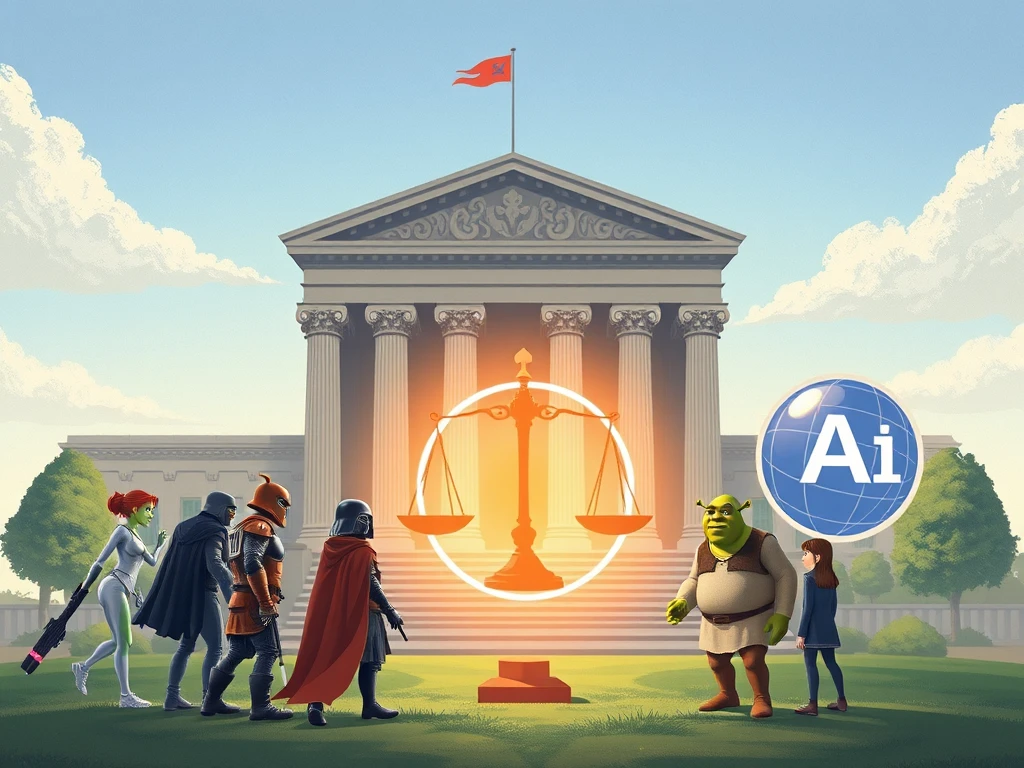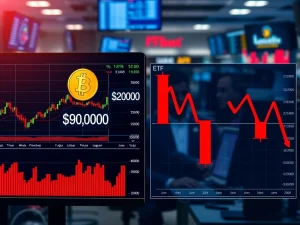Midjourney Lawsuit: Entertainment Giants Launch Shocking Copyright Battle Against AI Image Generator

The world of artificial intelligence just got a jolt. Entertainment powerhouses Disney and Universal have initiated a major legal challenge, filing a Midjourney lawsuit that accuses the popular AI image generator of rampant copyright infringement. This action escalates the ongoing legal battles faced by AI firms and brings major movie studios into the fray.
What is the Core Accusation in the Midjourney Lawsuit?
Filed in Los Angeles, the complaint from Disney and Universal centers on two main points:
- Midjourney allegedly used copyrighted works, including famous characters, to train its underlying AI models.
- The service allows users to generate and distribute images that directly copy these copyrighted characters.
The studios argue that Midjourney acts as a “copyright free-rider” and a “bottomless pit of plagiarism” by profiting from content it did not create or license. This AI copyright dispute highlights the fundamental tension between generative AI capabilities and intellectual property rights.
Which Famous Characters Are Involved in the Disney Copyright Claim?
The lawsuit specifically names characters from some of the world’s most valuable franchises. Disney alleges infringement related to its characters from:
- Star Wars
- Marvel
- The Lion King
- The Simpsons (licensed by Disney)
Universal’s claims involve characters from:
- Boss Baby
- Shrek
The studios claim users can easily prompt the AI image generator to create images featuring these specific, recognizable characters, which can then be downloaded and used.
Why Did Attempts at Resolution Fail Before the Universal Lawsuit?
According to the complaint, Disney attempted to resolve the issue before resorting to legal action. They claim they asked Midjourney to implement technical measures to prevent the generation of copyrighted works.
However, Disney alleges that Midjourney ignored these requests and instead continued to develop and promote newer versions of its service, including a forthcoming AI video service. The studios point out that Midjourney already has technology in place to block violent or nudity-related content, suggesting similar measures could be applied to protect copyrighted material. They state, “Midjourney controls what copyrighted content it selects, copies, and includes… and it has the means to implement protection measures.”
How Does This Midjourney Lawsuit Fit into Broader AI Legal Challenges?
This isn’t the first time an AI image generator or large language model provider has faced legal scrutiny over training data and generated content. Several cases have been filed by authors, artists, and even news organizations against AI firms like OpenAI, Microsoft, and Anthropic, alleging unauthorized use of their works for training purposes.
The Disney and Universal lawsuit is significant because it marks the entry of major Hollywood studios into this legal landscape, adding considerable weight and resources to the fight over AI and intellectual property. The studios are seeking a preliminary injunction to stop Midjourney from operating without implementing protective measures against copyrighted works.
What Happens Next?
As of now, Midjourney has not publicly responded to the lawsuit. The legal process will involve Midjourney filing a response to the complaint, potentially leading to discovery, motions, and eventually a trial or settlement. The outcome of this case could have significant implications for how AI models are trained and how generative AI services handle copyrighted material in the future.
Summary
The lawsuit filed by Disney and Universal against Midjourney represents a major escalation in the legal challenges facing the AI industry regarding copyright. Accusing the AI image generator of being a “bottomless pit of plagiarism” by using and generating copyrighted characters like those from Star Wars, Marvel, and Shrek, the entertainment giants highlight critical issues around training data, output control, and intellectual property protection. This case, alongside others like the Anthropic lawsuit or consolidated cases against OpenAI and Microsoft, underscores the urgent need for clarity and potential regulation in the rapidly evolving world of AI and creative content.








